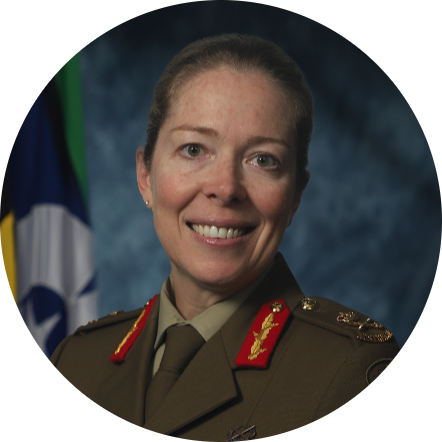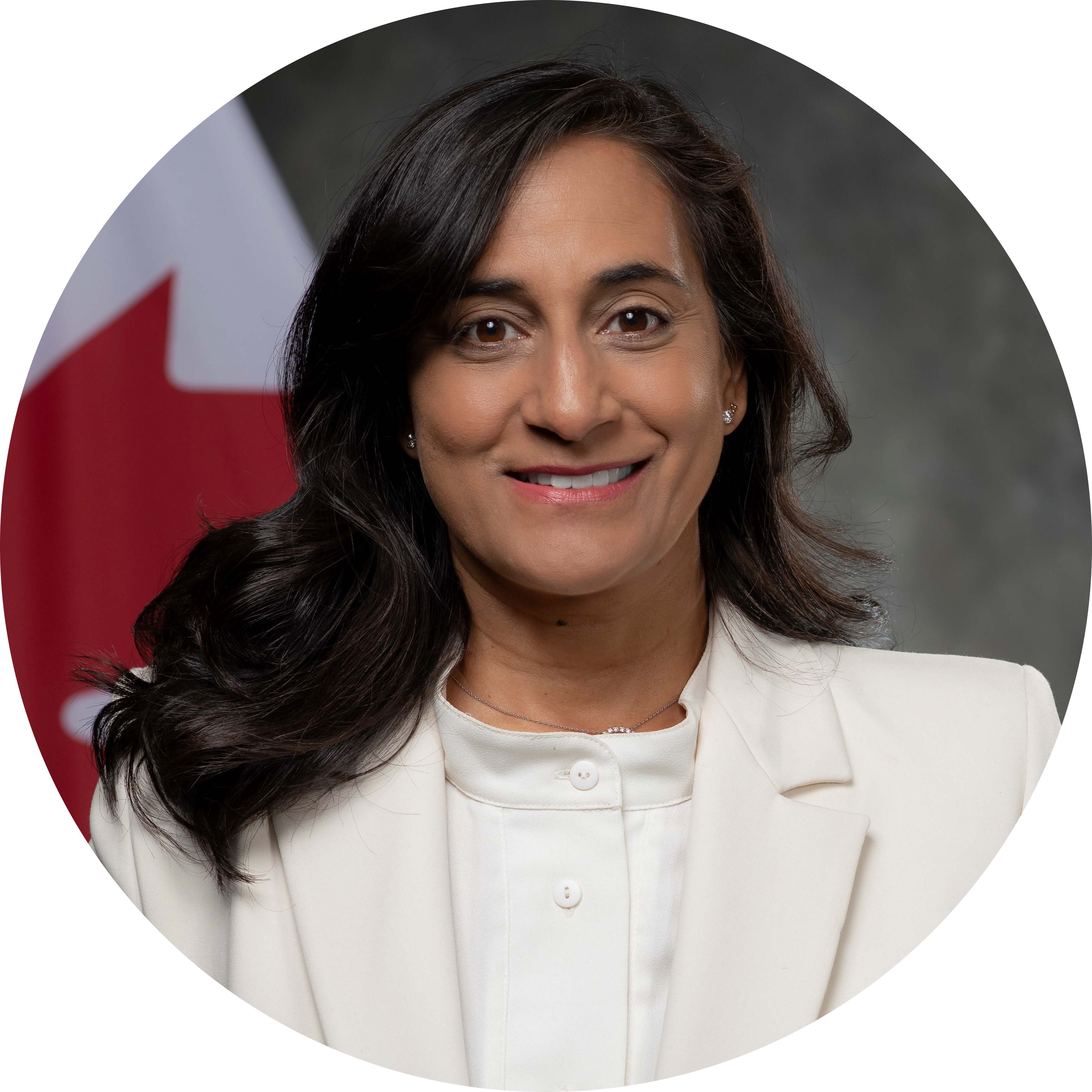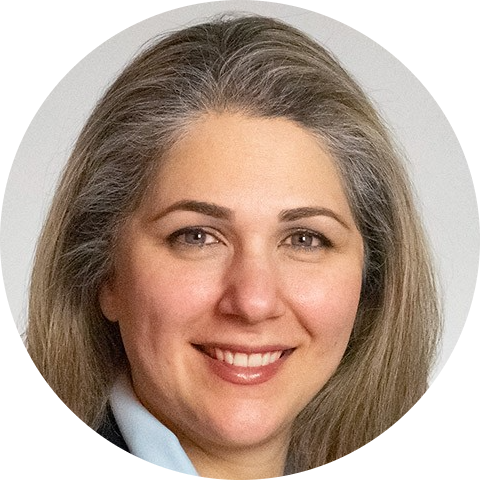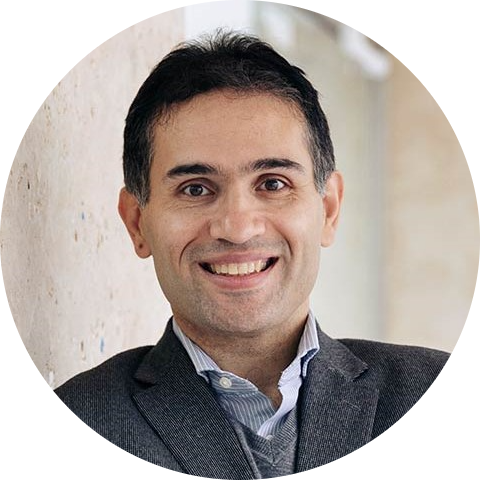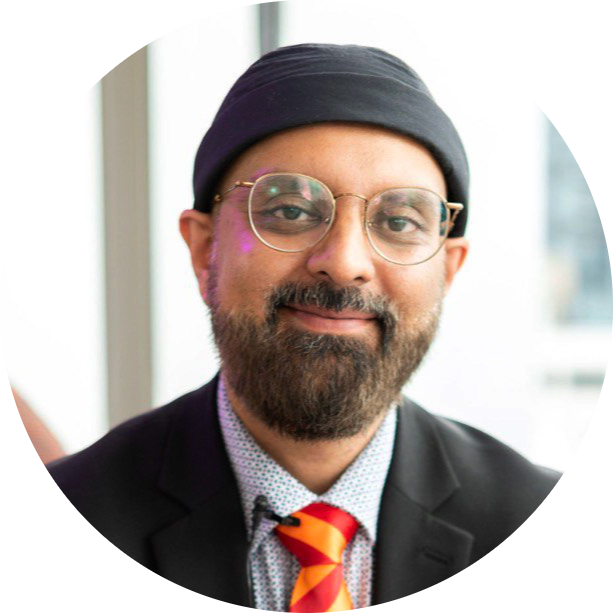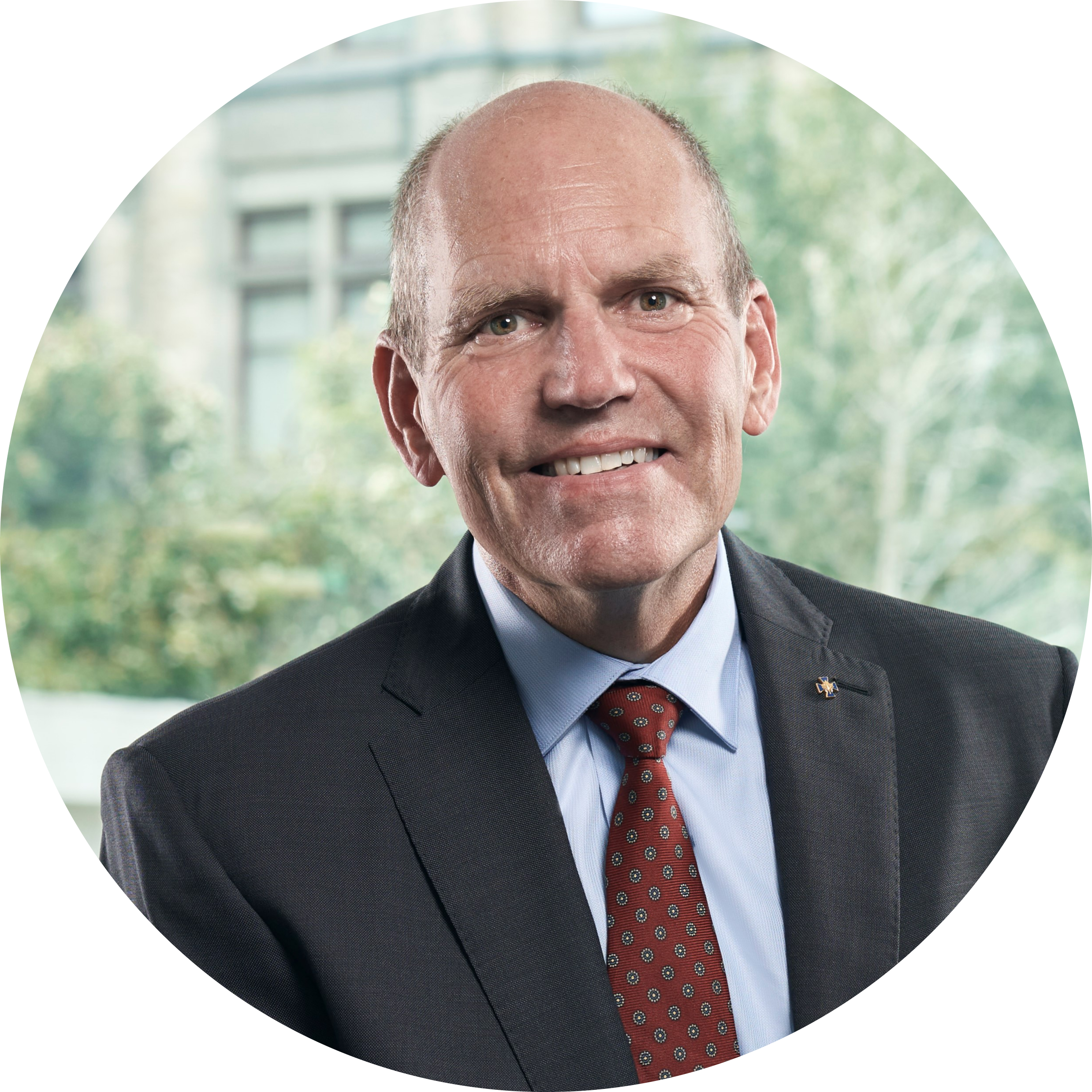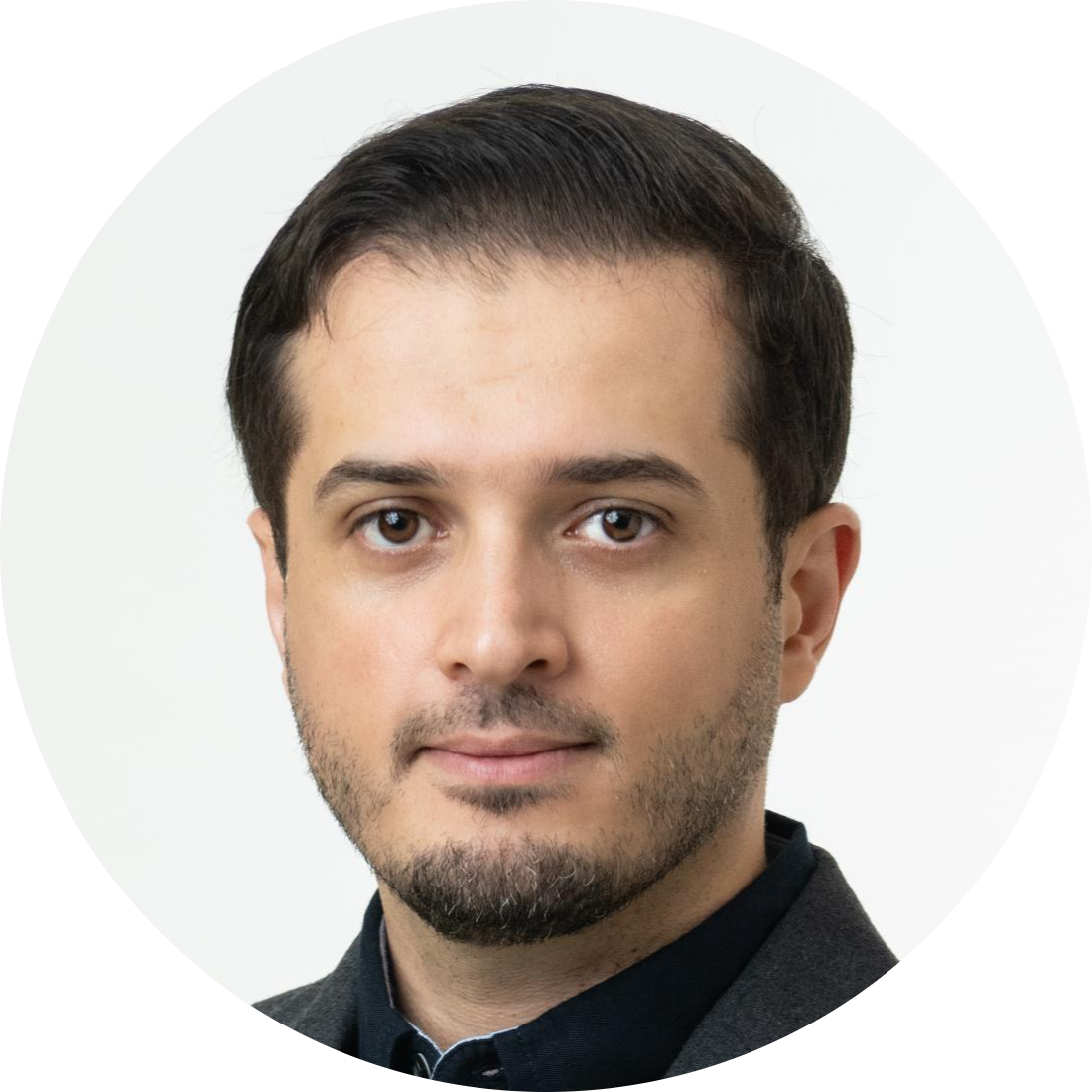History
PST 2023, DenmarkPST 2022, Canada
PST 2021, New Zealand
PST 2020, Canada
PST 2019, Canada
PST 2018, UK
PST 2017, Canada
PST 2016, New Zealand
PST 2015, Turkey
PST 2014, Canada
PST 2013, Catalonia
PST 2012, France
PST 2011, Canada
PST 2010, Canada
PST 2009, Canada
PST 2008, Canada
PST 2007, Canada
PST 2006, Canada
PST 2005, Canada
PST 2004, Canada
30th August - Conference Speakers (Australia)
Lieutenant General Michelle McGuinness
Biography:
Lieutenant General Michelle McGuinness, CSC was appointed as Australia’s National Cyber Security Coordinator (the Coordinator) on 26 February 2024. As the Coordinator, LTGEN McGuinness leads national cyber security policy, the coordination of responses to major cyber incidents, whole of government cyber incident preparedness efforts, and the strengthening of Commonwealth cyber security capability. LTGEN McGuinness has served in the Australian Defence Force for 30 years in a range of tactical, operational, and strategic roles in Australia and internationally.
Giovanni Chiarelli
Biography:
Giovanni joined TPG Telecom as Chief Technology Officer in January 2022. He has responsibility for mobile and fixed networks, information technology and digital. His previous experience includes Chief Technology & Information Officer at MTN South Africa, Chief Technology Officer at Vodafone Romania and Chief Information Officer at Telecom Italia. Giovanni holds a Master of Engineering and Master of Business Administration.
Willy Susilo
Biography:
Willy Susilo is a Distinguished Professor at the School of Computing and Information Technology, Faculty of Engineering and Information Sciences at the University of Wollongong (UOW), Australia.
He holds the most prestigious Australian Laureate Fellowship awarded by the Australian Research Council. He is the director of Institute of Cybersecurity and Cryptology, School of Computing and Information Technology, UOW. He is an IEEE Fellow, an IET Fellow, an ACS Fellow and an AAIA Fellow.
Previously, he was awarded the prestigious Australian Research Council Future Fellowship in 2009. He has published more than 500 papers in journals and conference proceedings in cryptography and network security. In 2016, he was awarded the "Researcher of the Year" at UOW, due to his research excellence and contributions. He is the Editor-in-Chief of the Information journal and the Special Content Editor of the Elsevier's Computer Standards and Interfaces. He is also serving as an Associate Editors in several international jornals. He has also served as the program committee member of several international conferences.
Previously, he was awarded the prestigious Australian Research Council Future Fellowship in 2009. He has published more than 500 papers in journals and conference proceedings in cryptography and network security. In 2016, he was awarded the "Researcher of the Year" at UOW, due to his research excellence and contributions. He is the Editor-in-Chief of the Information journal and the Special Content Editor of the Elsevier's Computer Standards and Interfaces. He is also serving as an Associate Editors in several international jornals. He has also served as the program committee member of several international conferences.
Albert Zomaya
Biography:
Albert Y. ZOMAYA is Peter Nicol Russell Chair Professor of Computer Science and Director of the Centre for Distributed and High-Performance Computing at the University of Sydney. He has published > 800 scientific papers and articles and is (co-)author/editor of >30 books. A sought-after speaker, he has delivered >300 keynote addresses, invited seminars, and media briefings. He is the past Editor in Chief of the IEEE Transactions on Computers, the IEEE Transactions on Sustainable Computing, and the ACM Computing Surveys.
Professor Zomaya is a decorated scholar with numerous accolades, including Fellowships of the IEEE, the American Association for the Advancement of Science, and the Institution of Engineering and Technology. Also, he is a Fellow of the Australian Academy of Science, Royal Society of New South Wales, a Foreign Member of Academia Europaea, and a Member of the European Academy of Sciences and Arts. Some of Professor Zomaya's recent awards include the Research Innovation Award, the IEEE Technical Committee on Cloud Computing (2021), the Technical Achievement and Recognition Award, the IEEE Communications Society's IoT, Ad Hoc, and Sensor Networks Technical Committee (2022). Professor Zomaya is a Clarivate 2022 & 2023 Highly Cited Researcher, and his research interests lie in parallel and distributed computing, networking, and complex systems.
Professor Zomaya is a decorated scholar with numerous accolades, including Fellowships of the IEEE, the American Association for the Advancement of Science, and the Institution of Engineering and Technology. Also, he is a Fellow of the Australian Academy of Science, Royal Society of New South Wales, a Foreign Member of Academia Europaea, and a Member of the European Academy of Sciences and Arts. Some of Professor Zomaya's recent awards include the Research Innovation Award, the IEEE Technical Committee on Cloud Computing (2021), the Technical Achievement and Recognition Award, the IEEE Communications Society's IoT, Ad Hoc, and Sensor Networks Technical Committee (2022). Professor Zomaya is a Clarivate 2022 & 2023 Highly Cited Researcher, and his research interests lie in parallel and distributed computing, networking, and complex systems.
17th/18th October - Industry Summit Speakers (Fredericton)
Anita Anand
Biography:
The Honourable Anita Anand is the President of the Treasury Board of Canada Secretariat.
Minister Anand was first elected as the Member of Parliament for Oakville in 2019. From 2019 to 2021, she served as Canada’s Minister of Public Services and Procurement, negotiating contracts to secure vaccines, PPE and rapid tests for Canadians during the height of the COVID-19 pandemic.
From 2021 to 2023, Minister Anand served as Canada’s Minister of National Defence, spearheading initiatives to tackle sexual misconduct and bring about cultural change in the Canadian Armed Forces. During this time, she also led Canada’s efforts to provide comprehensive military aid and personnel to train Ukrainian soldiers following Russia’s illegal invasion.
In her role as President of the Treasury Board, to which she was appointed in 2023, Minister Anand has spearheaded a government spending review, engaged in work to reduce regulatory burdens for small businesses and entrepreneurs, advanced the Greening Government Strategy, modernized and strengthened the Government of Canada’s digital capabilities, and revived the Canada-U.S. Regulatory Cooperation Council.
Born and raised in rural Nova Scotia, Minister Anand moved to Ontario in 1985.
Minister Anand has worked as a scholar, lawyer, and researcher. She has been a legal academic, including as a Professor of Law at the University of Toronto, where she held the J.R. Kimber Chair in Investor Protection and Corporate Governance. She served as Associate Dean and was a member of the Governing Board of Massey College and the Director of Policy and Research at the Capital Markets Research Institute, Rotman School of Management. She has also taught law at Yale Law School, Queen’s University, and Western University.
Minister Anand was first elected as the Member of Parliament for Oakville in 2019. From 2019 to 2021, she served as Canada’s Minister of Public Services and Procurement, negotiating contracts to secure vaccines, PPE and rapid tests for Canadians during the height of the COVID-19 pandemic.
From 2021 to 2023, Minister Anand served as Canada’s Minister of National Defence, spearheading initiatives to tackle sexual misconduct and bring about cultural change in the Canadian Armed Forces. During this time, she also led Canada’s efforts to provide comprehensive military aid and personnel to train Ukrainian soldiers following Russia’s illegal invasion.
In her role as President of the Treasury Board, to which she was appointed in 2023, Minister Anand has spearheaded a government spending review, engaged in work to reduce regulatory burdens for small businesses and entrepreneurs, advanced the Greening Government Strategy, modernized and strengthened the Government of Canada’s digital capabilities, and revived the Canada-U.S. Regulatory Cooperation Council.
Born and raised in rural Nova Scotia, Minister Anand moved to Ontario in 1985.
Minister Anand has worked as a scholar, lawyer, and researcher. She has been a legal academic, including as a Professor of Law at the University of Toronto, where she held the J.R. Kimber Chair in Investor Protection and Corporate Governance. She served as Associate Dean and was a member of the Governing Board of Massey College and the Director of Policy and Research at the Capital Markets Research Institute, Rotman School of Management. She has also taught law at Yale Law School, Queen’s University, and Western University.
Atty Mashatan
Biography:
Dr. Atty Mashatan holds a Canada Research Chair in cybersecurity and is an Associate Professor of Information Technology Management and the founder and director of the Cybersecurity Research Lab (CRL) at Toronto Metropolitan University. Her research is focused on the development of novel cybersecurity designs based on emerging technologies such as IoT, Blockchain, and Quantum Computing. She investigates challenges and opportunities brought forward by these new technologies and how they change the threat landscape of cybersecurity. Dr. Mashatan studies industry relevant research problems and proposes solutions that can be developed as part of the industry-academic collaborations.
Talk Title:
Adapting cybersecurity workforce to prepare for quantum risk mitigation
Talk Abstract:
Given the looming threat of quantum computing technology rendering current cryptographic algorithms obsolete, enterprises must proactively prepare for a post-quantum era. To understand preparation requirements, we explore potential impacts of quantum computing on professional cybersecurity disciplines within enterprises from a socio-technical perspective. Based on an in-depth case study of a large financial institution, we identify impacts and preparation and migration roles for five major disciplines within the cybersecurity group. We also identify four common challenges across cybersecurity disciplines, along with recommendations for addressing them.
Bridget Walshe
Biography:
Bridget Walshe is the Associate Head of the Canadian Centre for Cyber Security. Prior to this role, Bridget served the Director General of Operations, Security and Intelligence at the Privy Council Office for two years, where she was responsible for providing advice on key operational and policy issues in the Canadian Security and Intelligence community.
Bridget began her career at CSE in 2003 and has held various positions including Director General for the Secure Solutions and Services Directorate where she was responsible for applied research, architecture, engineering and development of secure cryptographic solutions. Bridget also worked as a mathematician, where she conducted applied research in cryptography and provided advice and guidance on the use of cryptographic algorithms by the Government of Canada. In subsequent roles she led teams of mathematicians and computer scientists in the development of complex, cryptologic solutions using both commodity and high-performance computing platforms.
Bridget holds a bachelor's degree and a master's degree in mathematics from the University of Victoria.
Bridget began her career at CSE in 2003 and has held various positions including Director General for the Secure Solutions and Services Directorate where she was responsible for applied research, architecture, engineering and development of secure cryptographic solutions. Bridget also worked as a mathematician, where she conducted applied research in cryptography and provided advice and guidance on the use of cryptographic algorithms by the Government of Canada. In subsequent roles she led teams of mathematicians and computer scientists in the development of complex, cryptologic solutions using both commodity and high-performance computing platforms.
Bridget holds a bachelor's degree and a master's degree in mathematics from the University of Victoria.
Talk Title:
Elevating Cyber Security
Talk Abstract: This session will focus on the need to change how cyber security should be a core business strategy, not just a compliance checkbox. We’ll explore the need to incentivise cyber security as a key value that enhances operations and mitigates risks and examine how operational practices and policies influence the digital threat landscape.
Carey Frey
Biography:
Carey Frey is a Canadian technology executive working to advance the cybersecurity industry, driven by a passion for creating a more secure digital world for everyone. As Chief Security Officer for TELUS, he is responsible for delivering corporate programs securing the company’s global assets and delivering managed cybersecurity services to TELUS customers.
Prior to TELUS, Carey served in the Government of Canada at the Communications Security Establishment in a variety of technology, intelligence and cybersecurity leadership roles bringing security innovation to federal departments and building collaborative relationships with global information and communications technology companies.
A native of rural Saskatchewan, Carey holds a Master’s Degree in Public Policy and Public Administration from Carleton University and a Bachelor of Science Degree in Computer Science from the University of Regina.
Prior to TELUS, Carey served in the Government of Canada at the Communications Security Establishment in a variety of technology, intelligence and cybersecurity leadership roles bringing security innovation to federal departments and building collaborative relationships with global information and communications technology companies.
A native of rural Saskatchewan, Carey holds a Master’s Degree in Public Policy and Public Administration from Carleton University and a Bachelor of Science Degree in Computer Science from the University of Regina.
Panel Title:
GenAI and Cybersecurity (Panel 2)
Dennis Garcia
Biography:
With over 20 years at General Dynamics Mission Systems Canada, Dennis Garcia is an experienced system engineer with extensive expertise in military communications. His work has included collaborations with the UK and Canadian military, focusing on ad hoc networking for tactical environments. Recently, his focus has shifted towards the integration of cloud-based platforms and the enhancement of cybersecurity and cyber defense capabilities for military enterprise systems.
Talk Title:
AI in Defence
Talk Abstract: Artificial Intelligence plays a vital role within the Armed Forces in collecting and operationalizing data on the battlefield. This presentation offers an overview of its uses and challenges within this domain.
Ebrahim Bagheri
Biography:
Ebrahim Bagheri is an interdisciplinary researcher with focus on Efficient and Responsible Information Retrieval methods who has impacted industry, government and civil society through community engagement and knowledge translation. He currently holds a Canada Research Chair in Social Information Retrieval and an NSERC Industrial Research Chair on Social Media Analytics. His NSERC CREATE on Responsible AI initiative is unique in that it highlights the need to balance economic development with social good. More recently, he is the Scientific Co-Director of the Bridging Divides program, a CFREF funded program that examines the intersection of advanced digital technologies and the future of immigration and migrant integration. He is the Associate Editor for IEEE Transactions on Network Science and Engineering and ACM Transactions on Intelligent Systems and Technology. In 2019, Ebrahim received the prestigious Government of Canada NSERC Synergy Award for Innovation for his outstanding industry-academia collaborations.
Talk Title:
Grounding socioeconomic aspects of AI in their context
Talk Abstract: The talk would address the complex interplay between artificial intelligence (AI) and socioeconomic dynamics, drawing parallels from historical technological advancements. Through a
series of examples, both the promise and peril of AI, examining how past innovations have shaped societies, economies, and individual lives are highlighted. From the transformative power of industrialization to the ethical dilemmas of technology, hoping to explore lessons learned and insights gained, offering a nuanced perspective on navigating the evolving landscape of AI's impact on our world.
Elaine Hum
Biography:
Elaine Hum has been a leader and an active voice in the cybersecurity field for over two decades. She has worked with government, not-for-profit, academic, and industry leaders to advise, govern, and strategically steer cybersecurity policy. In her current position as Director, Cybersecurity Partnerships, Scotiabank, she was instrumental in creating the Cybersecurity Partnership Program – a unique strategy
centered on developing a cybersecurity talent pipeline to attract diverse talent from a variety of equitydeserving groups.
In 2023, Elaine was recognized by IT World Canada's list of Top Women in Cybersecurity, which celebrates the achievements of 20 women who are surpassing expectations in the field of cybersecurity. Elaine is also a regular contributor at various cybersecurity forums as a speaker and panelist.
Elaine's greatest passion is giving back to the community. She is an active volunteer, serving as a coach and mentor to women in technology and STEM graduates. Elaine is also an Advisory Board Member for various organizations.
In 2023, Elaine was recognized by IT World Canada's list of Top Women in Cybersecurity, which celebrates the achievements of 20 women who are surpassing expectations in the field of cybersecurity. Elaine is also a regular contributor at various cybersecurity forums as a speaker and panelist.
Elaine's greatest passion is giving back to the community. She is an active volunteer, serving as a coach and mentor to women in technology and STEM graduates. Elaine is also an Advisory Board Member for various organizations.
Panel Title:
Empowering Women in Cybersecurity - Towards a more inclusive and diverse cybersecurity workforce (Panel 1)
Frank McKenna
Biography:
Frank McKenna is one of Canada’s most respected political and business leaders. He has been an executive with TD Bank Group since 2006 and joined TD Securities in January 2020. As Deputy Chair, he is focused on supporting the continued expansion of TD Securities’ global footprint.
He is a graduate of St. Francis Xavier University, Queen’s University and the University of New Brunswick Law School. He was awarded a prestigious Lord Beaverbrook Scholarship in Law and has practiced in courtrooms all the way up to the Supreme Court of Canada. He achieved widespread acclaim for his successful defence of Canadian boxing legend, Yvon Durelle.
He was elected Premier of New Brunswick in 1987 in a historic victory that left him with all 58 seats in the legislative assembly.
His time as a Premier was marked with widespread acclaim for balanced budgets and unprecedented job creation. He was the only politician in Canadian history to ever be named as Economic Developer of the Year and was inducted into the Canadian Technology Hall of Fame. He retired ten years ago to the day of his original election, keeping his promise to the people of New Brunswick that he would only serve ten years.
Since leaving public life, he was in widespread demand as a Corporate Director and acted as Counsel to two national law firms. He was named by Prime Minister Jean Chrétien to the Security Intelligence Review Committee. He was also inducted into the New Brunswick Business Hall of Fame and the Canadian Business Hall of Fame.
In 2005 he accepted an invitation from Prime Minister Paul Martin to become Canadian Ambassador to the United States of America.
Upon completing his time as Ambassador, he resumed his corporate career with TD Bank Group, one of North America’s largest banks. He also became the Chairman of Brookfield Asset Management, a global asset manager with $500 billion in assets. Additionally, he became a Director of Canadian Natural Resources (CNRL), Canada’s largest oil and gas producer. Mr. McKenna has a School of Public Policy named in his honor at St. Thomas University and the Frank McKenna Leadership Centre at St. Francis Xavier University. Also bearing his name are the Frank McKenna School of Philosophy, Politics and Economics at Mount Allison University and the Frank McKenna Leadership Centre - L’alUMni at Université de Moncton. In 2021, Mr. McKenna established The McKenna Institute at University of New Brunswick.
His charitable work, particularly in Haiti, was rewarded with the Red Cross Humanitarian of the Year award. Mr. McKenna is a King’s Counsel, Member of the King’s Privy Counsel, a Fellow of the Institute of Corporate Directors, a Member of the Order of New Brunswick and a Member of the Order of Canada. He is the recipient of 15 Honorary Degrees. He and his wife, Julie have three grown children.
He is a graduate of St. Francis Xavier University, Queen’s University and the University of New Brunswick Law School. He was awarded a prestigious Lord Beaverbrook Scholarship in Law and has practiced in courtrooms all the way up to the Supreme Court of Canada. He achieved widespread acclaim for his successful defence of Canadian boxing legend, Yvon Durelle.
He was elected Premier of New Brunswick in 1987 in a historic victory that left him with all 58 seats in the legislative assembly.
His time as a Premier was marked with widespread acclaim for balanced budgets and unprecedented job creation. He was the only politician in Canadian history to ever be named as Economic Developer of the Year and was inducted into the Canadian Technology Hall of Fame. He retired ten years ago to the day of his original election, keeping his promise to the people of New Brunswick that he would only serve ten years.
Since leaving public life, he was in widespread demand as a Corporate Director and acted as Counsel to two national law firms. He was named by Prime Minister Jean Chrétien to the Security Intelligence Review Committee. He was also inducted into the New Brunswick Business Hall of Fame and the Canadian Business Hall of Fame.
In 2005 he accepted an invitation from Prime Minister Paul Martin to become Canadian Ambassador to the United States of America.
Upon completing his time as Ambassador, he resumed his corporate career with TD Bank Group, one of North America’s largest banks. He also became the Chairman of Brookfield Asset Management, a global asset manager with $500 billion in assets. Additionally, he became a Director of Canadian Natural Resources (CNRL), Canada’s largest oil and gas producer. Mr. McKenna has a School of Public Policy named in his honor at St. Thomas University and the Frank McKenna Leadership Centre at St. Francis Xavier University. Also bearing his name are the Frank McKenna School of Philosophy, Politics and Economics at Mount Allison University and the Frank McKenna Leadership Centre - L’alUMni at Université de Moncton. In 2021, Mr. McKenna established The McKenna Institute at University of New Brunswick.
His charitable work, particularly in Haiti, was rewarded with the Red Cross Humanitarian of the Year award. Mr. McKenna is a King’s Counsel, Member of the King’s Privy Counsel, a Fellow of the Institute of Corporate Directors, a Member of the Order of New Brunswick and a Member of the Order of Canada. He is the recipient of 15 Honorary Degrees. He and his wife, Julie have three grown children.
Greg Murray
Biography:
Greg frequently advises boards, senior executives, the Government of Canada, and academic institutions on policy, IT, networks, cybersecurity, AI, and digital transformation. He serves as a Board Director for the National Cybersecurity Consortium, advancing cyber innovation and talent development in Canada. Greg also served as the industry co-chair for the Canadian Security Telecommunications Advisory Committee (CSTAC) from 2020 to 2023, facilitating the Telecommunications Memorandum of Understanding (MOU) between government and industry. Greg holds degrees from the University of Toronto and Athabasca University, as well as the ICD.D designation.
Panel Title:
GenAI and Cybersecurity (Panel 2)
Ireen Birungi
Biography:
Ireen has over 20 years of experience in cybersecurity in a variety of industries across the public, private and consulting sectors with a focus on risk management, compliance, identity and access management and incident response. Ireen currently is the Head of Information Security and CISO at Interac Corp., where she leads the charge in safeguarding the organization's digital assets and information systems from cyber threats. Ireen has a passion for mentorship as well as building and leading resilient and high performing teams that together are focused on maturing the security posture for organizations.
As a lifelong learner, Ireen holds a degree in Economics from the University of Toronto and multiple cybersecurity designations including CISSP, CISM, and CRISC. She is a Women in Payments nominee, an active member of various cyber-member lead communities and forums and an advisory board member. She’s a busy mom of two wonderful children, and hopes to get back to visual arts, painting, one day.
As a lifelong learner, Ireen holds a degree in Economics from the University of Toronto and multiple cybersecurity designations including CISSP, CISM, and CRISC. She is a Women in Payments nominee, an active member of various cyber-member lead communities and forums and an advisory board member. She’s a busy mom of two wonderful children, and hopes to get back to visual arts, painting, one day.
Panel Title:
- Empowering Women in Cybersecurity - Towards a more inclusive and diverse cybersecurity workforce (Panel 1)
- GenAI and Cybersecurity (Panel 2)
Jennifer Sloan
Biography:
A former public servant and political-staffer-turned-diplomat, Jennifer Sloan made her foray into the private sector and currently leads public policy and stakeholder engagement for Mastercard Canada.
Earlier in her career, she was the Director of Communications for one of the longest serving Industry Ministers in Canada and continued in this role as he moved to Foreign Affairs, then Deputy Prime Minister and Minister of Finance. She continued this work when she was appointed to the Consulate General of Canada in NYC.
A passionate advocate for social impact, Jennifer developed The Mastercard Changeworks™ program, a grassroots initiative that partners with the not-for-profit sector in Canada to improve their technology and data capabilities. She’s a Vital Voices Global Ambassador and serves on numerous corporate and association boards including Immediate past Chair of the Canadian American Business Council (CABC); Chair of Music Canada; Director Indigenous Prosperity Foundation (IPF); Director Women’s College Hospital; and Director of the Board of Trust of Grady College of Journalism and Communication at the University of Georgia.
A Mastercard CEO Force for Good Recipient, Jennifer also received a 2019 North America President’s Award; 2023 North American Partnership Award; Top 100 Lobbyists in Canada, the Hill Times; bestowed the Henry W. Grady Alumni Award at the University of Georgia; and National Colby Award for Public service, Sigma Kappa. Jennifer has a Bachelor of Arts degree in journalism from the University of Georgia in Athens, Georgia.
Earlier in her career, she was the Director of Communications for one of the longest serving Industry Ministers in Canada and continued in this role as he moved to Foreign Affairs, then Deputy Prime Minister and Minister of Finance. She continued this work when she was appointed to the Consulate General of Canada in NYC.
A passionate advocate for social impact, Jennifer developed The Mastercard Changeworks™ program, a grassroots initiative that partners with the not-for-profit sector in Canada to improve their technology and data capabilities. She’s a Vital Voices Global Ambassador and serves on numerous corporate and association boards including Immediate past Chair of the Canadian American Business Council (CABC); Chair of Music Canada; Director Indigenous Prosperity Foundation (IPF); Director Women’s College Hospital; and Director of the Board of Trust of Grady College of Journalism and Communication at the University of Georgia.
A Mastercard CEO Force for Good Recipient, Jennifer also received a 2019 North America President’s Award; 2023 North American Partnership Award; Top 100 Lobbyists in Canada, the Hill Times; bestowed the Henry W. Grady Alumni Award at the University of Georgia; and National Colby Award for Public service, Sigma Kappa. Jennifer has a Bachelor of Arts degree in journalism from the University of Georgia in Athens, Georgia.
Talk Abstract:
AI has the power to transform entire facets of our economy and how we approach cybersecurity. To fully harness AI’s power, we must eliminate blind spots in this technology, and this requires a diverse workforce and ensuring people from all backgrounds are involved in the design and implementation of AI. In this keynote address, Jennifer Sloan will unpack key themes including technology and prosperity, security as a top concern and inclusive growth.
Mansur Mirani
Biography:
Driven by a passion for technology, design, human interaction, and security, Mansur Mirani is a technology professional with over 25 years of experience across a diverse range of roles. Holding a Bachelor of Technology in Human-Computer Interaction, Mansur has excelled in roles such as business owner, web designer & developer, UX manager, and director of architecture and analytics. Currently, as Vice President and Lead for Mastercard’s Global Intelligence and Cyber Centre of Excellence in Vancouver, he supports teams driving technology and intelligence initiatives, focusing on cybersecurity, decisioning, and AI-driven solutions. His career is marked by a commitment to innovation and team leadership in advancing cutting-edge technology with a user-focused approach.
Panel Title:
GenAI and Cybersecurity (Panel 2)
Melanie Anderson
Biography: Melanie Anderson is the Director General, Information Assurance at the Canadian Centre for Cyber Security. She is responsible for applied cryptographic research, architecture, engineering and development of secure cryptographic solutions, and advice and guidance on the transition to quantum safe cryptography.
Melanie is passionate about mentoring and supporting women to pursue STEM careers. She’s worked as a software developer, technical trainer, IT Project Manager, technical liaison and led teams in Cyber Defence. She holds a BCS from the University of New Brunswick and completed the Senior Executive Fellows Program through the Harvard Kennedy School. In 2023, Melanie was named one of Canada’s Top 20 Women in Cyber Security by IT World Canada.
Panel Title: Empowering Women in Cybersecurity - Towards a more inclusive and diverse cybersecurity workforce (Panel 1)
Talk Title: Government views on the quantum threat and transition to post quantum cryptography
Talk Abstract: Have you ever wondered what the government’s role is in cryptography and the nexus with quantum computing and cyber security? In this presentation, you will:
- Learn about the Canadian Centre for Cyber Security at the Communications Security Establishment and their role as the technical authority in cryptography for the federal government;
- Hear about the work that they are doing to support the post quantum cryptography transition in Canada including evaluation of the NIST quantum-safe cryptography standards and providing advice and guidance on cryptographic algorithms and protocols; and
- Receive an overview of cryptographic agility and why it is important to consider as part of the quantum safe transition, timelines for the transition to post quantum cryptography and helpful resources available to support Canadians with this important initiative.
Rick Fawcett
Biography:
Rick Fawcett served for 34 years as a Signal Officer in the Canadian Armed Forces, serving in Canada and Europe as well as participating in six expeditionary operations. Since joining Canada’s defence industry, Rick has focused on the design and integration of Command and Control and Communications systems, including the cyber protection of these systems. He now serves as Strategic Advisor at ADGA. Rick was awarded the NATO Meritorious Service Medal and was inducted into the Order of Military Merit. In his spare time, Rick enjoys spending time at his cottage and playing hockey and golf.
Talk Title: Preserving Dataset Integrity for Earth Observation and Spaceborne Reconnaissance
Talk Abstract:
Putting satellites in orbit or accessing spaceborne imagery used to be very expensive propositions which only government agencies or industrialized counties could afford. This has changed over the last decade with the appearance of micro-satellites and commercial LEO constellations which have tremendously reduced the cost of data, and opened new opportunities for scientific applications. For example, soil moisture can now be measured from space in near real time allowing for better crop and wildfire management. But data integrity has not been a priority for many commercial operators, there is little consistency when it comes to storage or encryption, and entire databases are at risk. This talk will illustrate these concerns with practical cases and suggest priorities for future work.
Patrice Nadeau
Biography:
Patrice Nadeau is the Senior Assistant Deputy Minister of Networks and Security Services (NSS), Shared Services Canada (SSC) / Government of Canada.
Before this, Patrice was the Director General responsible for Data Networks in the Networks and End Users Branch (NEUB).
Patrice joined SSC from Public Works and Government Services Canada (PWGSC) as a Delivery Executive for the Telecommunications and the Information Technology (IT) Security lines of business. Patrice began his career in the private sector with Matrox in Dorval, and subsequently joined the federal Public Service in 1996 with PWGSC as an Account Manager for the Government Telecommunications and Informatics Services (GTIS). Since 1996, he held various IT management positions within PWGSC and SSC.
Patrice holds a Bachelor in Electrical Engineering from l'École de technologie supérieure (ETS) de Montréal.
Before this, Patrice was the Director General responsible for Data Networks in the Networks and End Users Branch (NEUB).
Patrice joined SSC from Public Works and Government Services Canada (PWGSC) as a Delivery Executive for the Telecommunications and the Information Technology (IT) Security lines of business. Patrice began his career in the private sector with Matrox in Dorval, and subsequently joined the federal Public Service in 1996 with PWGSC as an Account Manager for the Government Telecommunications and Informatics Services (GTIS). Since 1996, he held various IT management positions within PWGSC and SSC.
Patrice holds a Bachelor in Electrical Engineering from l'École de technologie supérieure (ETS) de Montréal.
Talk Title: Shared Services Canada – Delivering Digital Solutions Together for Canada
Talk Abstract:
When Shared Services Canada (SSC) was created in 2011, its goal was to provide modern, reliable and secure technology services to the Government of Canada. Since then, SSC has advanced digital government in a variety of ways, from improving network infrastructure and equipping public servants with modern tools, to providing the sort of efficient hosting and client-centric digital services that proved critical to government services and programs during the pandemic.
Thirteen years later, the global IT landscape has changed dramatically, but SSC’s goal remains the same: to equip the Government of Canada with the technology it needs to effectively deliver services to Canadians.
But technology moves fast, and with it, the cyber threats faced by organizations globally. As an integrated service delivery organization, SSC is working as one, powering digital services for the Government of Canada to make sure it doesn’t just keep up – but stays ahead.
Thirteen years later, the global IT landscape has changed dramatically, but SSC’s goal remains the same: to equip the Government of Canada with the technology it needs to effectively deliver services to Canadians.
But technology moves fast, and with it, the cyber threats faced by organizations globally. As an integrated service delivery organization, SSC is working as one, powering digital services for the Government of Canada to make sure it doesn’t just keep up – but stays ahead.
Sajjad Dadkhah
Biography:
Dr. Sajjad Dadkhah is an R&D team leader and assistant professor at the Canadian Institute of Cybersecurity (CIC), Faculty of Computer Science, University of New Brunswick (UNB). He has over ten years of experience in cybersecurity, IoT security, digital multimedia security, AI-based detection systems, Intrusion detection systems, and natural language processing (NLP). He has established himself as a leading authority in the field of cybersecurity and security in IoT by involving in several security projects as a team leader and researcher, and security consultant in different organizations such as CIC-NRC,Kyushu University (Japan), Universiti Malaya (UM), IRIS Smart Technology Complex, and Kyushu Institute of Technology (Japan). He has been the Managing editor of Applied Soft Computing (ASOC) Elsevier journal for eight years.
Talk Abstract:
Information disorders can be broadly categorized into three types: misinformation, disinformation, and malinformation. Each represents different challenges and impacts, especially now that information can travel and spread rapidly. They are among the most significant challenges today, impacting cybersecurity, public trust, democratic processes, and societal cohesion. In this presentation, we will discuss these challenges and their impact. We will also demonstrate our AI-powered deep defender system that can help protect the integrity of information and maintain public trust.
Scott Buffett
Biography:
Scott Buffett is a Senior Research Officer in the Digital Technologies research center at the National Research Council, leading the center’s Cybersecurity research team. Dr. Buffett holds a PhD in computer science from the University of New Brunswick, where he continues to serve as an Adjunct Professor. His research interests lie in artificial intelligence and machine learning, specifically in the area of pattern analysis for behavioral analytics.
Talk Abstract:
The National Research Council’s Digital Technologies Research Centre (DTRC) is a global leader in research and development in artificial intelligence (AI), helping to drive the adoption of digital technologies across academia, government and private sector. At the intersection of AI with other technologies, DTRC has developed profound expertise in cybersecurity, cryptography, and privacy-enhancing technologies. While DTRC operates from many locations across Canada, a significant degree of work is conducted in Fredericton, in close collaboration with the Canadian Institute for Cybersecurity. In this talk, we will present an overview of our research, citing specific examples of success stories, and also discussing how academia, industry and other government departments can collaborate with us.
Steve Sparkes
Biography:
Steve was appointed Executive Vice President, Chief Information Security Officer and Enterprise Platforms in November 2023. In this role, he is responsible for the development of enterprise infrastructure, IT and cyber risk strategies, systems, and procedures, as well as applications in support of HR, Operations and Compliance, and fraud technologies.
Steve joined Scotiabank in 2021 as Chief Information Security Officer and SVP, Information Security and Control. He has more than 30 years of experience in leadership roles in technology infrastructure, application development, IT and operational risk, and cybersecurity.
Prior to Scotiabank, Steve held the roles of Managing Director and Head of Cybersecurity Technology at Bank of America, and Managing Director at Morgan Stanley, where he was Chief Technology Officer for Investment Banking and Chief Information Officer of Technology and Information Risk.
Steve is a strong advocate of the necessity of Cybersecurity and resilience across the industry and has delivered numerous presentations on topics such as ethical AI and emerging technological threats. He serves on the executive board of FS-ISAC, a memberdriven, not-for-profit organization that advances Cybersecurity and resilience in the global financial system, as well as being active in the Canadian cyber community.
Steve joined Scotiabank in 2021 as Chief Information Security Officer and SVP, Information Security and Control. He has more than 30 years of experience in leadership roles in technology infrastructure, application development, IT and operational risk, and cybersecurity.
Prior to Scotiabank, Steve held the roles of Managing Director and Head of Cybersecurity Technology at Bank of America, and Managing Director at Morgan Stanley, where he was Chief Technology Officer for Investment Banking and Chief Information Officer of Technology and Information Risk.
Steve is a strong advocate of the necessity of Cybersecurity and resilience across the industry and has delivered numerous presentations on topics such as ethical AI and emerging technological threats. He serves on the executive board of FS-ISAC, a memberdriven, not-for-profit organization that advances Cybersecurity and resilience in the global financial system, as well as being active in the Canadian cyber community.
Panel Title:
GenAI and Cybersecurity (Panel 2)
Sundeep Sandhu
Biography:
Sundeep Sandhu, the Vice President of Cyber Security and CISO at Rogers Bank for Rogers Communications, spearheads transformative cybersecurity initiatives while safeguarding Canadian interests. Her accolades include receiving the 2023 Women in Communications & Technology (WCT) Woman of the Year Award for her notable contributions to cybersecurity and the community.
Renowned for assembling high-impact teams and promoting diversity in cyber leadership, Sundeep actively fosters cross-sector collaboration, championing strategic partnerships that drive innovation and shared success. Her dedication to STEM initiatives has left an indelible mark on the cybersecurity landscape, earning her a reputation as a trailblazer.
Renowned for assembling high-impact teams and promoting diversity in cyber leadership, Sundeep actively fosters cross-sector collaboration, championing strategic partnerships that drive innovation and shared success. Her dedication to STEM initiatives has left an indelible mark on the cybersecurity landscape, earning her a reputation as a trailblazer.
Panel Title:
Empowering Women in Cybersecurity - Towards a more inclusive and diverse cybersecurity workforce (Panel 1)
Vio Onut
Biography:
Iosif Viorel (Vio) Onut is passionate about curriculum and product innovation acceleration through R&D. In the past decade; he has managed more than 150 research projects involving 35 universities, led by over 90 professors, over 360 students and over 330 IBM staff. On a technical level, he specializes in cybersecurity and cybercrime. He has been in this space for 20+ years in various technical, academic and management roles.
He is co-Director of the University of Ottawa and IBM Cyber Range; Adjunct Professor at the University of Ottawa; Head of Centre for Advanced Studies, IBM Canada Lab and IBM Master Inventor at IBM Security.
He is co-Director of the University of Ottawa and IBM Cyber Range; Adjunct Professor at the University of Ottawa; Head of Centre for Advanced Studies, IBM Canada Lab and IBM Master Inventor at IBM Security.
Talk Title:
Security Challenges Arising from AI Advancements
Talk Abstract:
With the rapid advances in AI, there is a real risk of these technologies being used for cyber-attacks. In particular, we'll examine the misuse of AI technology as a means of impersonating individuals. It's clear how this irresponsible use could enhance a social engineering attack and make it more believable. We encourage participants to consider how they use AI technology and how a hacker could exploit that.
Kwasi Boakye-Boateng
Biography:
Kwasi received his BSc. and MPhil degrees in Computer Engineering from the Kwame Nkrumah University of Science and Technology, Kumasi, Ghana. Kwasi received his Ph.D. degree in Computer Science from the University of New Brunswick, specializing in smart grid security. During his time as a Postdoctoral Fellow, he was involved in various industrial-related cybersecurity projects with renowned industry giants such as Siemens, General Dynamics Missions Systems-Canada and IBM and he was also a Research Team Lead. His research interests include trust in smart grid, threat intelligence sharing, security of military-based mission-critical systems and smart grid security.
Talk Title:
Post-Attack Mitigation and Risk Management in Critical Infrastructure: A Workshop on Operational Technology, Health-Based IoT, and Military Mission Contexts
Talk Abstract:
Critical Infrastructure (CI) plays an essential role in our daily lives. In Operational Technology (OT)-based CI such as energy and manufacturing, while extensive research has focused on preventing and detecting attacks, there is a significant gap in strategies for mitigating damage once an attack has been fully executed. This workshop addresses this gap by proposing a mitigation framework designed to address attacks that have occurred, with the aim of tackling scenarios involving zero-day exploits.
Additionally, the workshop will explore the role of Internet of Things (IoT) devices in health-based CI, discussing their profiling, vulnerabilities, and the datasets available for research on related attacks. Finally, we will examine business-process-oriented risk management in mission-critical CI within the context of military operations. This section will focus on integrating risk management strategies that consider the specific military processes affected by cyber-attacks. Through these discussions, the workshop aims to advance understanding and preparedness in mitigating the impacts of cyber threats on critical infrastructure.
Additionally, the workshop will explore the role of Internet of Things (IoT) devices in health-based CI, discussing their profiling, vulnerabilities, and the datasets available for research on related attacks. Finally, we will examine business-process-oriented risk management in mission-critical CI within the context of military operations. This section will focus on integrating risk management strategies that consider the specific military processes affected by cyber-attacks. Through these discussions, the workshop aims to advance understanding and preparedness in mitigating the impacts of cyber threats on critical infrastructure.
Vikas Chouhan
Biography:
Vikas Chouhan presently serves as a postdoctoral fellow and team lead at the Canadian Institute for Cyber Security (CIC) situated at the University of New Brunswick in Fredericton, Canada. His academic journey includes the attainment of M.Tech and Ph.D. degrees in Computer Science and Engineering from the esteemed Indian Institute of Technology in Roorkee, India. Dr. Chouhan actively participates in the academic community as a program committee member for various international conferences and as a meticulous reviewer for numerous conferences and journals. His research interests encompass diverse areas such as Cloud Computing, Cloud Security & Privacy, Information Security & Reliability, Blockchain Technology, and Post-Quantum Security. Notably, Dr. Chouhan collaborates with a financial institution and a government organization in multiple Post-Quantum Cryptography projects, showcasing his commitment to applying state-of-the-art cryptographic techniques in practical, real-world scenarios.
Talk Title:
Advancing Cryptographic Agility in Emerging Quantum-Resistant Technologies
Talk Abstract:
As quantum computing advances, the security of current cryptographic systems faces significant threats, making the development of quantum-resistant technologies imperative. Advancing Cryptographic Agility in Emerging Quantum-Resistant Technologies addresses this need by focusing on cryptographic agility, which is the capability to swiftly adapt and switch between cryptographic algorithms in response to emerging threats. This discussion will assess the readiness of current cryptographic standards against quantum attacks, explore progress in standardizing quantum-resistant algorithms, and examine hybrid cryptographic implementations that combine classical and post-quantum methods. Additionally, we will discuss practical use cases where these technologies can be applied, providing insights into their impact on various industries and sectors.
Important Dates
Paper Submission:May 18, 2024, 11:59pm (AoE)
Acceptance Notification:
July 1, 2024
Camera-Ready:
July 17, 2024
Conference Date:
August 28-30, 2024





